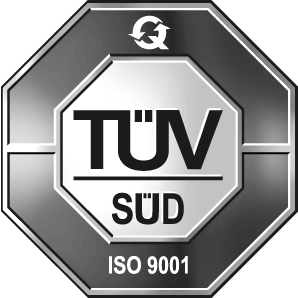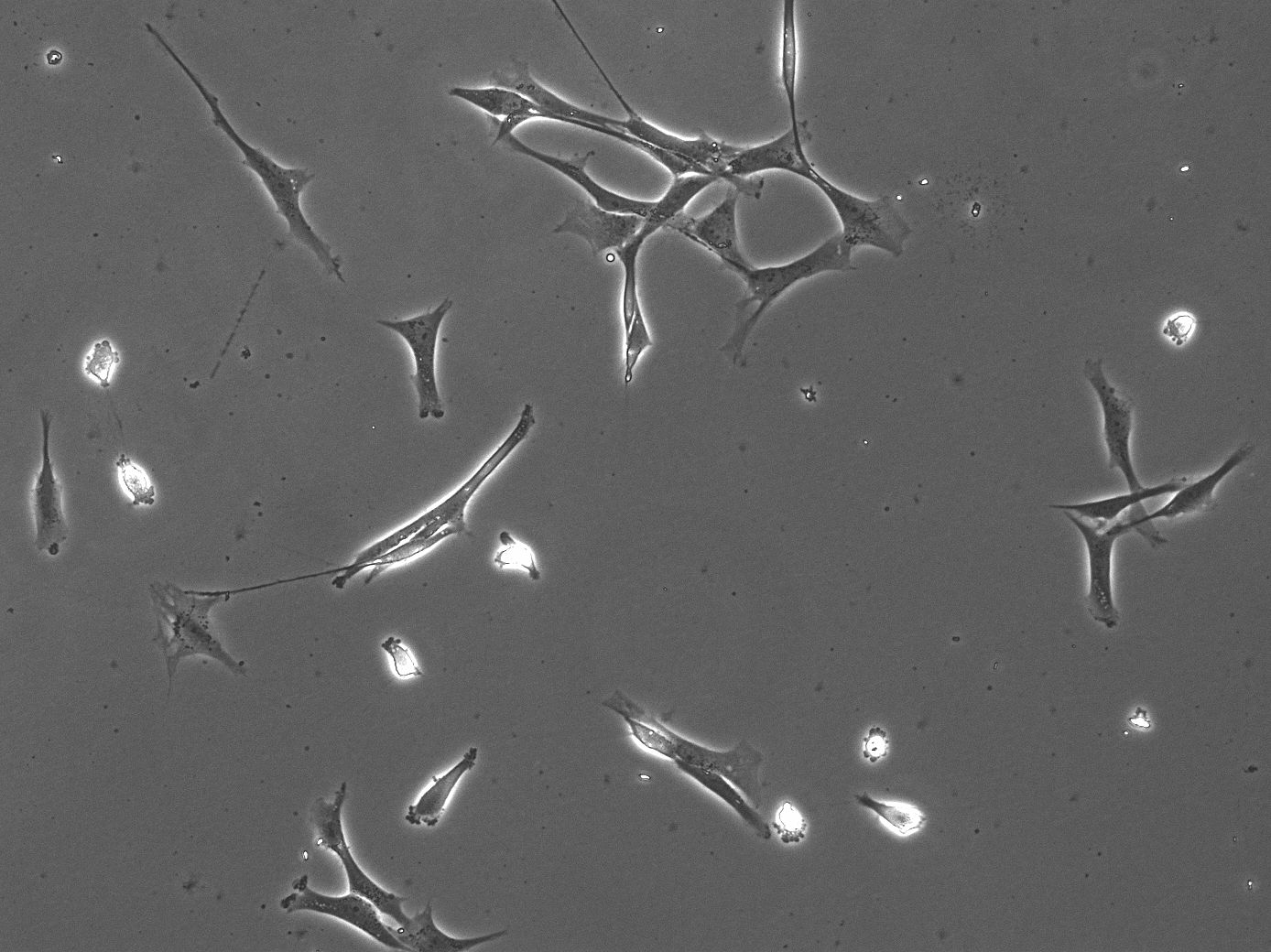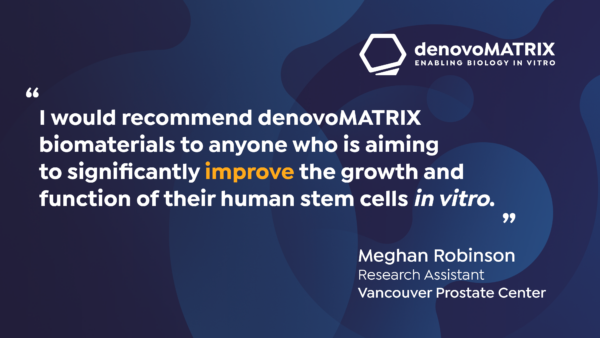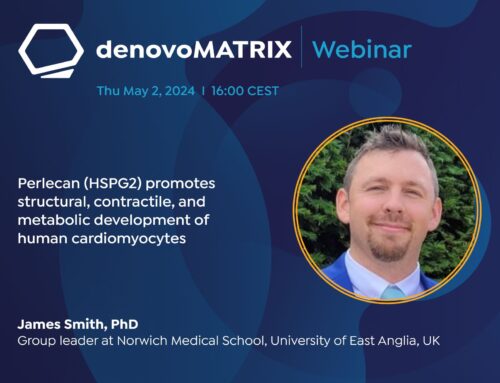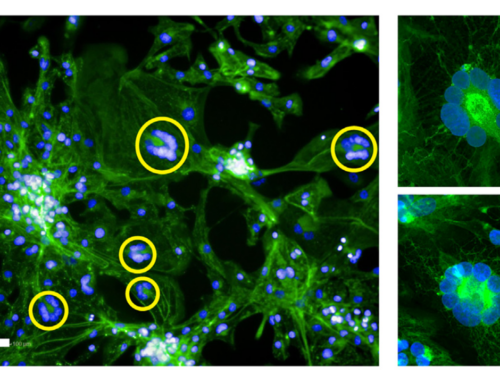Meghan Robinson is a research assistant at the Vancouver Prostate Centre focusing on the spermatogonial stem cells (SSCs). Her research requires the in vitro expansion of human primary SSCs. Conventional coatings such as Matrigel and laminin were failing to support SSCs culture, so she was looking for something more biomimetic and came across denovoMATRIX biomaterials. The screenMATRIX enabled Meghan to identify a matrix that enhanced human SSCs growth and supported cellular phenotype.
We talked with Meghan to know more about her research and understand the challenges she faced to establish her cell culture. We also explored how she found a solution to her cell culture struggles.
denovoMATRIX: What type of research are you focusing on and what is its implication for the corresponding field?
Meghan Robinson: Our lab focuses on male infertility and regenerative medicine. A major aim of our regenerative research is to differentiate human sperm in a lab setting.
SSCs are the rare self-renewing progenitors to sperm, estimated to account for only 1-3% of the cells in the adult testicular niche, yet responsible for regenerating millions of sperm per day. Their isolation and in vitro expansion could be used to treat men with severe infertility known as non-obstructive azoospermia (NOA), where intrinsic dysfunction in the testicular niche prevents SSCs from differentiating. SSCs harvested from such patient biopsies have the potential to be differentiated in vitro for use in Assisted Reproduction Technologies (ART).
However, in vitro culture and expansion of human SSCs has not been established; to date methods vary but typically rely on conventional coatings and animal-derived products, reporting doubling rates of 2-4 weeks and eventual overgrowth by strange “stroma” cells within a few passages. Moreover, during this culture period, spermatogonial stem cells are reported to lose normal phenotypical expression.
Therefore, a regenerative platform to treat NOA requires the development of a better system for culturing SSCs in vitro which can support their expansion and preserve their phenotype.
denovoMATRIX: What made you try biomatrices from denovoMATRIX?
Meghan Robinson: Since conventional culture conditions had been unsuccessful in culturing spermatogonial stem cells I was looking for a more sophisticated and biomimetic alternative. I was introduced to denovoMATRIX over LinkedIn.
denovoMATRIX: Why would you recommend biomatrices from denovoMATRIX?
Meghan Robinson: I would recommend denovoMATRIX biomaterials to anyone who is aiming to significantly improve the growth and function of their human stem cells in vitro.
